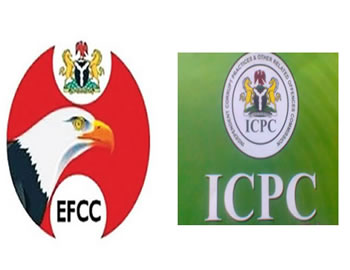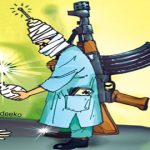Nigeria has recently embarked on something which its leadership describes as a war against corruption. I do not know whether it is by design or by mere happenstance but the series of events which government and its agents fly as posters for the success of combating corruption are unworthy of what a people, having any hope for an enduring change in ethos, would give more than a token of credit to.
But Nigerians love drama and this administration, due to either its own deficient grasp of the issues or a deliberate effort at exciting the people. They have provided nothing beyond quality entertainment in the naming and shaming without repatriation that we have seen in the case of the former National Security Adviser, Sambo Dasuki. He is the alleged mainspring for most of the sleaze that characterised the immediate past administration, became a resident in one government custodial or the other for about 16 months now.
But for the isolated case of the former Managing Director of the Nigerian Maritime Administration and Safety Agency, Patrick Akpobolokemia, who was alleged to have funnelled N2.6bn of national resources to assorted criminal outlets and a few others, virtually everyone recently accused of complicity in corrupt practices sourced their lucre from Dasuki’s overflowing pool.
Yet, this case has gained no motion in over one year, and one of the problems we are having is the patent incapacity of investigating and prosecuting bodies. Apart from the burden of insufficient funding that these bodies grapple with, there is the incessant failure to build the capacity of their officials to respond to modern challenges of economic crimes.
The Chief Justice of Nigeria, Justice Mahmud Mohammed, drew attention to this when he hosted the National Electronic Fraud Forum in November 2015. Mohammed spoke about the need for investigation-led arrest and not arrest-led investigation which would assure that an agency already had a case before moving on a suspect. The CJN stressed that for anti-graft agencies to successfully nail accused persons, they must, at least, call a witness on each count in the charge.
Of course, the premeditation that the judiciary stalls the war against corruption would dispirit government from considering these suggestions, which are fundamental to the effectiveness or otherwise of the war against corruption.
Government also rushed into this war without getting to the roots of the problem. It is like tackling a problematic tree by cutting it from the top; this tree would, of course, sprout again! While corruption has always been part of human nature, its current national ubiquity is symptomatic of deeper problems part of which is the crushing level poverty in the land.
As is said of former Prime Minister of Singapore, Lee Kuan Yew, when he was confronted by extraordinary corruption, there is an overriding need to wipe out corruption from the public service, which is the engine room for the running of government and every kind of political corruption.
Any country intent on seriously fighting corruption must pay public servants fair and realistic wages benchmarked to private sector earnings. This is the only way a society can demand the highest standards of integrity and performance from its workers. In a country where public education, health care and housing have gone to the dogs, civil servants, teachers, doctors and policemen should be well-paid and reoriented to avoid the temptation to abuse their office.
The truth is that while we are making public spectacle of those accused of political corruption, it is business as usual in institutions like the police, immigration, customs, road safety and the MDAs in the country. The story is not much different in the private sector. So, the President is in Abuja congratulating himself for a job well done but those who make the machinery of government move manipulate their ways to survival. How many of them do you hope to arrest in eight years?
The other thing is that corruption is a societal problem that cannot be fought and won by the President alone. If the President desires to leave a Nigeria where people abhor corruption, he must win foot soldiers and convert people to his side from across the nation.
Nothing stops this government from speaking with the leaders of the other arms of government, having a meeting of minds, set up machinery to get faith based leaders, professional organisations and parents on board this war. Success would be easier were the President to make this a war owned by all Nigerians. That aloof, only-me can do it, self-righteous disposition without consensus building will only end as another fleeting initiative that no one will remember.
- Adedokun is a public affairs analyst.






